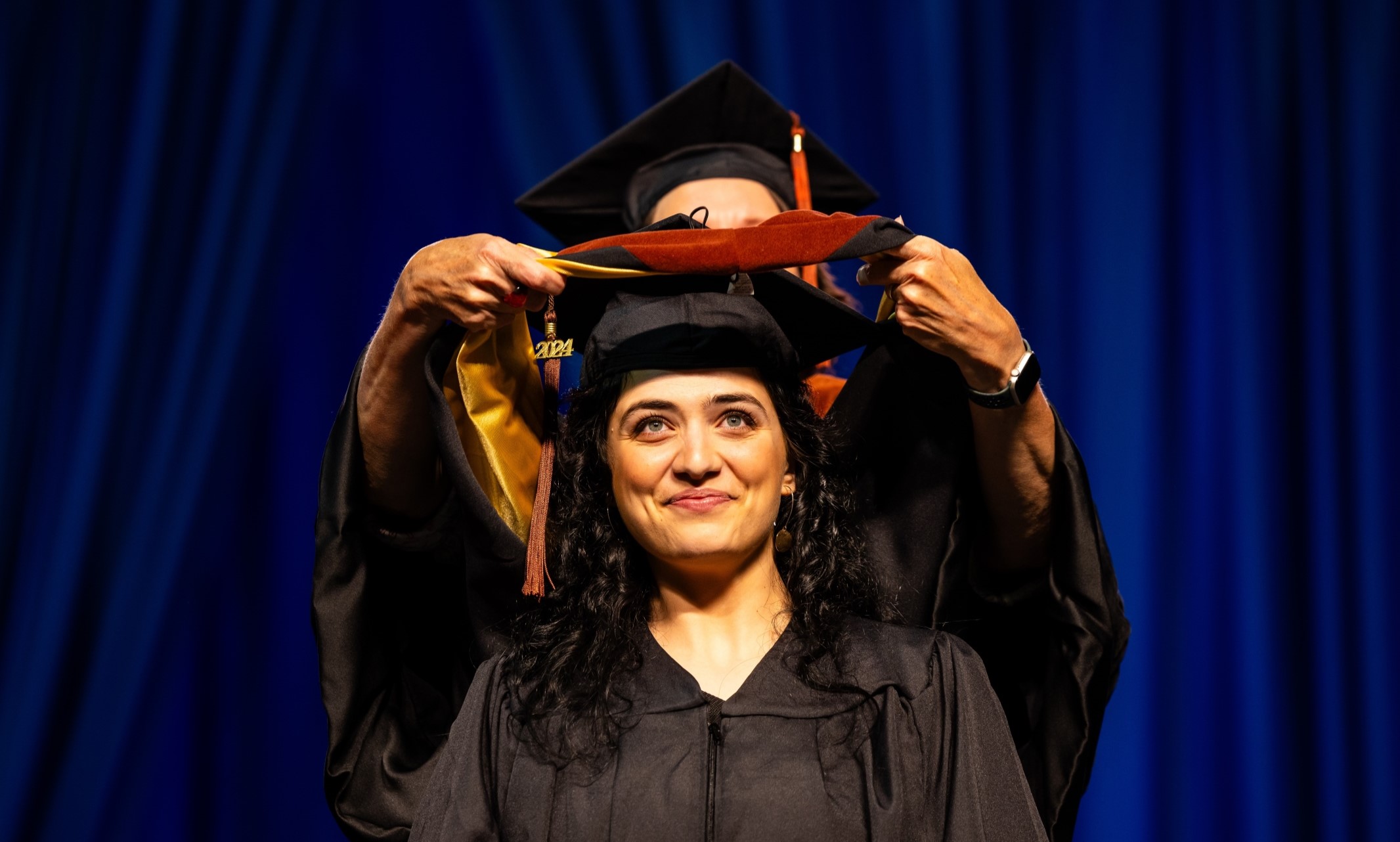The University of Missouri-Kansas City has added eight Ph.D. programs to its curriculum. All of these programs will begin admitting students in Fall 2025. With the addition of these programs, UMKC now offers more than 35 doctoral and professional programs.
The doctoral programs – some that include multiple focus areas – are:
- Electrical and Computer Engineering
- Mechanical Engineering
- Civil Engineering
- Computer Science
- Economics
- Education with focus areas in Curriculum and Instruction; Educational Leadership, Policy and Foundations; Music Education
- Humanities with focus areas in English; History
- Natural Sciences with focus areas in Biomedical and Health Informatics; Cell Biology and Biophysics; Chemistry; Geosciences; Mathematics; Molecular Biology and Biochemistry; Oral and Craniofacial Sciences; Pharmaceutical Sciences; Pharmacology; Physics
“These programs allow students to earn a globally recognized credential right here in Kansas City,” School of Graduate Studies Dean Christine Getz said. “They combine an advanced disciplinary specialization with opportunities to diversity skills in preparation for a variety of careers in academics, industry, government, education and the nonprofit sector.”
The programs won’t just benefit students. As Kansas City’s university, the impact to the city and larger region is always top of mind when new opportunities are considered.
“When we consider new academic programs, we determine if there is a need in the Kansas City region and how the program will benefit the community,” Chancellor Mauli Agrawal said. “We’re particularly excited about the opportunities for research that our new Ph.D. programs will provide, including bringing more funding and jobs to the community.”
The new degree programs will help move the university toward its goal of attaining Carnegie Research 1 status that would designate the university as having very high research activity. The R1 designation would make it easier to hire additional excellent faculty and attract more students. It also helps with national prestige, leading to more research funding and partnerships with other R1 institutions and organizations in the community. Only 146 universities – or 5% – in the country have R1 status, and none currently do in the Kansas City region.
“The new degree programs better identify the areas in which faculty and students are already researching and working,” said Jennifer Lundgren, provost and executive vice chancellor. “We expect that this clarity will us recruit high-quality faculty and students, as well as boost our research opportunities.”

